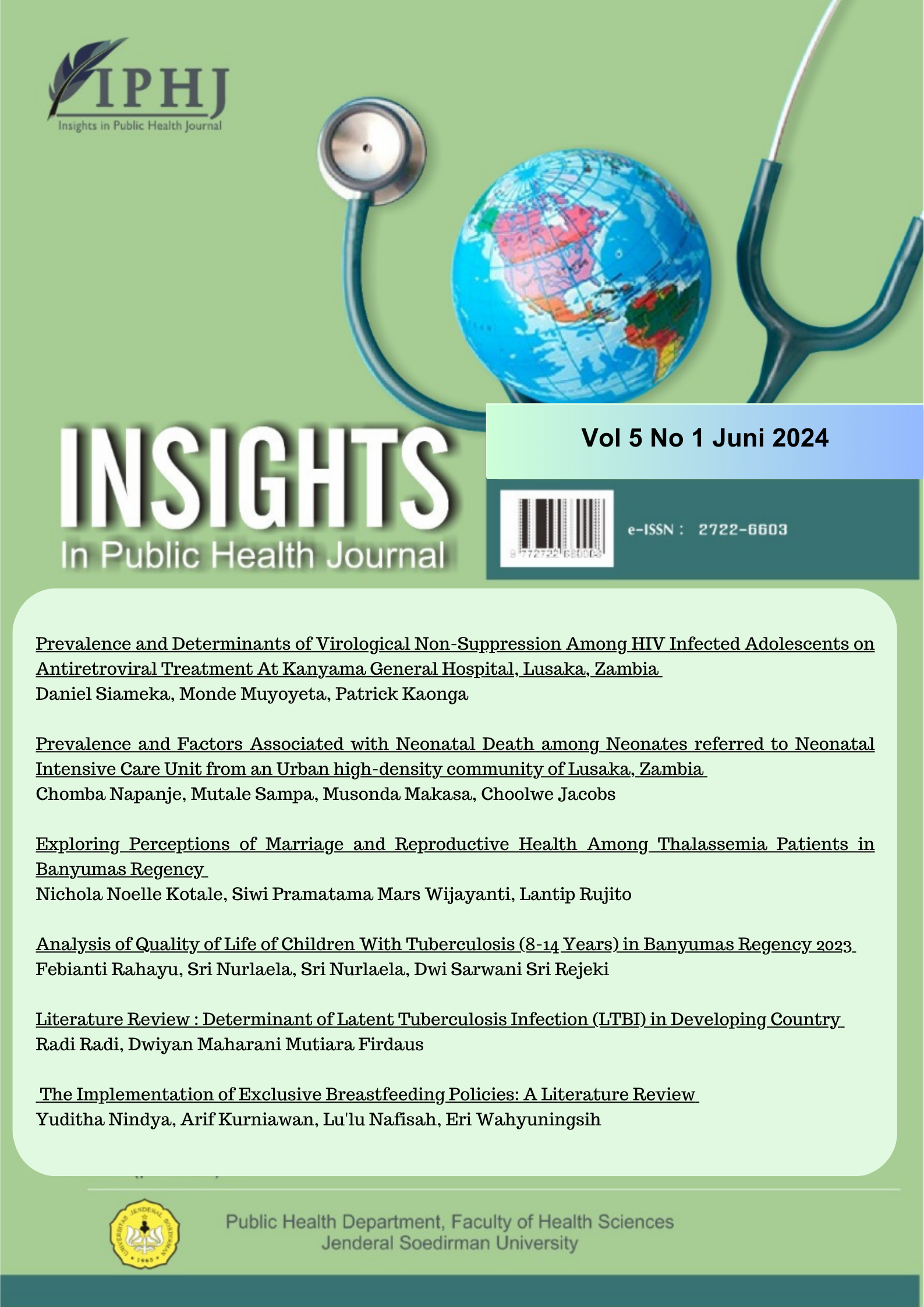Exploring Perceptions of Marriage and Reproductive Health Among Thalassemia Patients in Banyumas Regency
Abstract
Abstract
Background: Thalassemias are a large group of autosomal recessive disorders characterized by imbalanced globin chain production, resulting in and haemolytic anaemia. The complications of thalassemia arise due to iron overload in the bodily organs. Iron overload in the endocrine glands causes hypogonadism, which then affects the growth of reproductive organs. As a result, reproduction in thalassemia patients is not a normal procedure. Thalassemia patients considering marriage and having a family go through so many psychological problems in life, which are influenced by factors such as their socioeconomic status, adherence to treatment and complications. These factors play a role in shaping the perceptions towards marriage and reproduction of thalassemia patients.
Method: This study was aimed at exploring the perceptions surrounding marriage and reproduction. This research was a descriptive study design conducted in Purwokerto, Central Java. Data was collected for 37 participants through interviews and questionnaires, for variables on sociodemographic, attitude to treatment, and perceptions surrounding marriage and reproduction. Data was analyzed using Microsoft excel and Minitab software version 22.
Results: The results demonstrated that the average age of the participants was 26.41 with a standard deviation of 5.93. The youngest participant was 16 years and the oldest was 39 years old. 84% of the participants were female and 16% were male. 75% of the participants had an education level of high school or lower, 81% had economic support, and 56% had jobs with income. Most participants never abandoned blood transfusion therapy, iron chelation, and other necessary treatments. Many reported of experiencing negative impacts in their lives, despite the absence of complications. Married participants still report of experiencing infertility, while some have children. Many participants agree for prenatal diagnosis of thalassemia foetus but disagree on abortion of thalassemia foetus. Participants interviewed about their perception regarding male and female contraceptive methods, had little knowledge regarding the subject.
Conclusion: More studies are needed to fully explore the perceptions on marriage and reproductive health of thalassemia patients. Thalassemia patients willing to start a family go through so many challenges, and need collective support from the society and caregivers, for them to live a normal life. Thalassemia patients should also understand reproductive health through counselling.
Keywords: Marriage, Thalassemia, Reproductive Health, Fertility

This work is licensed under a Creative Commons Attribution 4.0 International License.









